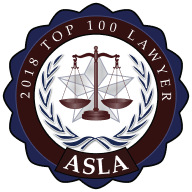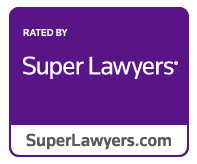Tailgating is one of the leading causes of traffic accidents, especially on busy highways like the Downtown Connector in Atlanta. When a driver follows too closely behind another vehicle, it creates a dangerous scenario where a sudden stop or slow movement can result in a rear-end collision. These accidents are often serious, leading to both physical and financial burdens for the victims involved. If you’ve been injured in a tailgating accident, evidence will play a significant role in determining who is responsible and the amount of compensation you may receive.
Understanding the Mechanics of Tailgating Accidents 
Tailgating occurs when a vehicle follows too closely behind the car in front, often with less than one car-length distance between them. On the Downtown Connector, a busy, fast-moving freeway in Atlanta, this kind of behavior is particularly dangerous. Drivers are often rushed and distracted, creating an environment where tailgating can easily occur.
The majority of rear-end collisions are caused by tailgating. The at-fault driver may fail to react in time to sudden stops or slowing down by the vehicle in front. The rear driver may argue that they did not have enough space or time to stop, but the law in Georgia holds drivers responsible for maintaining a safe following distance. This means that if you are rear-ended by a tailgating driver, they are likely at fault for the crash, provided that you have the proper evidence to support your claim.
The Importance of Gathering the Right Evidence
In any car accident case, especially one involving tailgating, it is crucial to gather the right evidence to prove fault. Without this evidence, it becomes difficult to hold the responsible party accountable for the damages caused. In a rear-end collision, evidence can come in several forms, each contributing to the overall case. Below are some examples of evidence that can significantly impact the outcome of your car accident claim.

Dash Cam Footage
One of the most powerful pieces of evidence in a tailgating case is dash cam footage. Many drivers have cameras mounted on their dashboards to record their driving for security purposes. In the event of a crash, this footage can be critical in showing the events leading up to the collision.
Dash cam footage can clearly show the driver of the tailgating vehicle following too closely, making it evident that their actions were the primary cause of the crash. In many cases, footage can capture the exact moment of impact, the position of both vehicles, and even the behavior of the at-fault driver immediately before and after the crash. This type of evidence can be incredibly persuasive in proving liability and ensuring that you receive the appropriate compensation for your injuries and property damage.
Photographs and Videos
Immediately following the crash, it is important to take photographs or videos of the accident scene. This visual evidence can play a significant role in strengthening your case. Photographs should include the damage to both vehicles, the position of the cars after the collision, and any other relevant details such as road conditions, traffic signs, or skid marks.
If possible, capture wide-angle shots of the entire scene, as well as close-ups of the damage. This will help provide a complete picture of what happened and support your claim. It’s also essential to document any injuries you sustained in the crash, including bruises, cuts, or bruising that may not be immediately visible but could show up later.
I had the pleasure of working against Chris on a fairly complicated case. Chris was professional during the course of litigation, and undoubtedly maintained his clients’ interests as the primary focus throughout. Due to Chris’ efficiency and advocacy for his clients, we were able to resolve the case for a reasonable amount, without spending unnecessary time and expenses. I hope to have more cases with Chris in the future, and would have no hesitation recommending Chris to handle complex personal injury matters.” - Paul T.
Witness Statements
In some cases, there may be witnesses to the crash who saw the tailgating behavior or the collision itself. Witness statements can be incredibly valuable, especially when it comes to proving the other driver’s fault. Eyewitnesses who observed the tailgating vehicle driving recklessly or too close to the car ahead can provide testimony that helps corroborate your version of events.
In Atlanta, where traffic is often dense, it is common for other drivers or pedestrians to witness accidents on the Downtown Connector. If there are any such witnesses, their statements can add credibility to your claim and strengthen your case. Always ask for contact information from anyone who witnessed the accident, as their statements can make a substantial difference in the outcome of your claim.
Dealing with Insurance Steps to File a LawsuitRelated Videos
Police Reports
After a car accident, the police will usually arrive on the scene to document the incident. The police officer will create an official report that outlines the circumstances of the crash, any injuries sustained, and the damage caused. This report often includes information about the contributing factors to the crash, such as tailgating, speeding, or distracted driving.
While the police report itself may not always assign fault directly, it can be instrumental in helping to establish a narrative of events that supports your claim. The officer’s observations and preliminary conclusions can strengthen your position and provide a neutral third-party perspective on the situation.
Medical Records
In any car accident case, but especially one involving tailgating, it is crucial to have medical documentation of the injuries you sustained. Medical records serve as proof of the physical harm you endured and can provide an accurate picture of the treatment you received.
These records will not only document the injuries caused by the crash but also provide insight into how the injuries may impact your life moving forward. For example, if you suffer from whiplash or spinal injuries, medical records can show the extent of the damage and how it may affect your ability to work or perform daily tasks. This evidence is key when calculating the compensation you deserve, which may include compensation for medical bills, lost wages, and pain and suffering.
How to Prove Liability in a Tailgating Accident
To successfully claim compensation for a tailgating accident on the Downtown Connector, you must prove that the other driver was negligent in their actions. The evidence gathered—such as dash cam footage, photographs, medical records, and witness statements—can all contribute to showing that the tailgating driver was at fault.
The key to proving liability is establishing that the tailgating driver’s actions directly caused the collision. If you can show that they failed to maintain a safe following distance, failed to react in time to your vehicle slowing down, or were driving too aggressively, you increase your chances of holding them accountable for the crash.
The Role of Insurance Companies in Tailgating Cases
When filing a car accident claim, you will likely have to deal with the other driver’s insurance company. Insurance companies, of course, want to pay out as little as possible. They will examine the evidence presented to determine whether they are liable for the damages caused by the crash.
In tailgating cases, having solid evidence is vital. Insurance adjusters will closely review dash cam footage, witness statements, and the police report to assess liability. If they determine that the other driver was at fault, they may offer a settlement to cover your medical bills, property damage, and lost wages. However, if they refuse to offer a fair settlement or dispute liability, you may need to take the case to court.
Why Hiring an Experienced Attorney Is Crucial
While evidence is vital in any car accident claim, the process of negotiating with insurance companies or taking the case to court can be complex. An experienced personal injury attorney in Atlanta, such as those at Gunnels Law Firm, LLC, can help you navigate the legal process, ensuring that all the necessary evidence is presented effectively. They can also advocate on your behalf and ensure that you receive the full compensation you deserve.
If you are involved in a tailgating accident on the Downtown Connector, the right evidence can significantly impact your car accident claim. Dash cam footage, photographs, witness statements, police reports, and medical records all play crucial roles in proving liability and securing the compensation you need to recover from your injuries.
At Gunnels Law Firm, LLC, we understand the complexities of tailgating accidents and are dedicated to helping clients in Atlanta navigate the legal system. Contact us today to schedule a consultation and discuss how we can assist you with your personal injury claim.
Have you been involved in a tailgating accident on the Downtown Connector? Contact Gunnels Law Firm, LLC today for a free consultation and get the legal support you need to pursue your claim.







